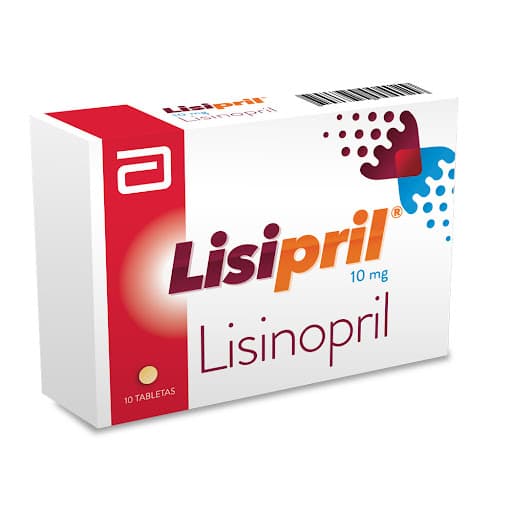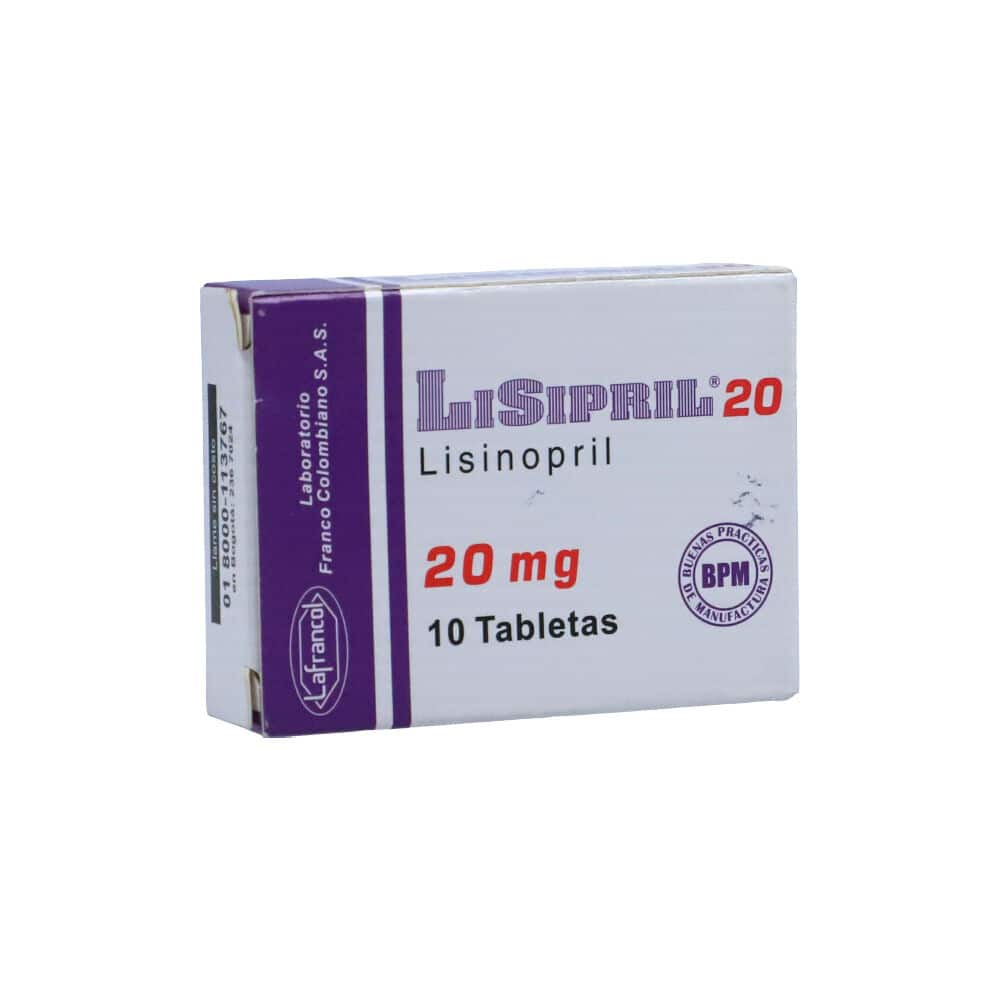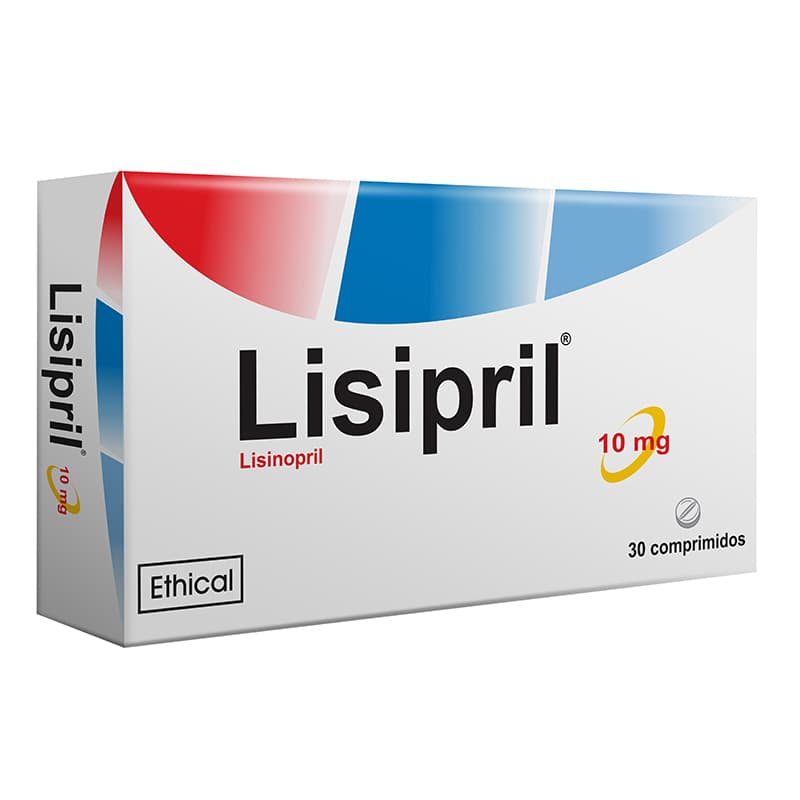Lisipril: Doses, Uses, Side Effects and Precautions
Lisipril is a drug whose active ingredient is lisinopril, used to treat high blood pressure (hypertension) and heart failure.
This drug can also be prescribed after a heart attack and helps the patient prevent future strokes and heart attacks.
It also increases your chances of survival after a heart attack or when used for heart failure.
Lisipril works by widening your blood vessels and making it easier for your heart to pump blood around your body.
It is also used to slow the disease in diabetic kidney disease.
Lisipril is available by prescription only.
Lisinopril, the active ingredient in the drug, is also available with another blood pressure medication called hydrochlorothiazide (other brand names: Zestoretic, Lisoretic).
- Lisipril tablets lower your blood pressure and make it easier for your heart to pump blood around your body. You may experience dizziness when you take this medicine for the first time, so it may be best to take it at bedtime. If you do not experience dizziness at first, you can take Lisipril at any time of the day.
- Some people may experience a dry, tickling cough after using this medicine. If you experience such situations, your doctor may say that you need to switch to a different medication.
- If you experience severe diarrhea or vomiting due to stomach bug or illness while using this medicine, tell your doctor. Your doctor may tell you to stop taking Lisipril until you get better.
- The use of alcohol with Lisipril may cause problems such as drowsiness and dizziness. It’s a good idea to stay away from alcohol and similar substances until you know how the drug affects you.

What Will We Learn?
Who Can Take Lisipril?
Anyone over the age of 6, who does not have any health problems, can take Lisipril.
If you have diabetes and are using this medicine, check your blood sugar (glucose) more often during the week.
This is because this medicine can lower your blood sugar levels.
Like any medicine, Lisipril may not be suitable for some people.
If you have any of the conditions listed below, talk to your doctor before using this medicine:
- If you have ever had an allergic reaction to lisinopril, the active ingredient in the drug, or to any other drug
- If you are pregnant breastfeeding or trying to become pregnant.
- if you are undergoing some form of blood filtration (eg dialysis)
- If you have kidney, heart and liver problems
- If you have low blood pressure
- If you have diabetes
- If you are going to have surgery
- If you have recently had discomfort such as vomiting or diarrhea
- If you are on a low-salt diet
- If you are undergoing desensitization therapy (usually used to reduce your allergy to insect stings)
- If you have blood problems such as low white blood cell count
How Is Lisipril Used?
Please follow your doctor’s recommendations and the instructions that come with your medicine.
The usual dose of Lisipril is as follows, unless your doctor tells you otherwise:
Depending on what you are taking this medicine for, the usual starting dose for adults is between 2.5 mg and 10 mg once daily.
Your doctor will start the medication with lower doses and gradually increase it to the normal dose for your condition:
- The usual dose for high blood pressure is 20mg once daily (the maximum daily dose is 80mg)
- The Usual dose after a recent heart attack is 10 mg once daily
- The usual dose for heart failure is 5 mg to 35 mg once daily
- The usual dose for diabetic kidney disease is 10mg to 20mg once daily
Doses are usually lower for children, and your doctor will determine the correct dose based on your child’s age, weight, and why they need this medicine.
The doctor prescribing the medicine at a low dose will check your blood pressure and ask if you experience any side effects from your medicine.
Your doctor may also want you to have blood tests to check how well your kidneys are working and the amount of potassium in your blood.
In children, this drug is prescribed in low doses, which may then gradually increase depending on your child’s blood pressure and other symptoms.
You usually take Lisipril once a day.
Your doctor may tell you to take your first dose at bedtime as it may make you dizzy.
You can take Lisipril any time of the day after the first dose.
You can take Lisipril with or without a meal.
Swallow the Lisipril tablets whole with a glass of water.
If you’re worried about the side effects of Lisipril, talk to your pharmacist or doctor about your dose.
You can usually take Lisipril for 6 weeks after a heart attack.
After using the medicine, your doctor will monitor you and decide if you need to use the medicine for a longer period of time.
For heart failure, high blood pressure and diabetic kidney disease, treatment with Lisipril is usually long-term, even for the rest of your life.
Contact your doctor if problems such as sweating, high fever and chills, or severe diarrhea or vomiting occur.
Your doctor may recommend that you stop taking Lisipril until you recover and can eat and drink normally.
If you forget to take the dose, take it as soon as you remember.
If it is almost time for the next dose, skip the missed dose and continue with the new dose.
Never, ever take a double dose to make up for the missed dose.
Taking more Lisipril than your doctor prescribes may cause you to feel dizzy, sleepy, and heart palpitations.
The amount of Lisipril that can cause an overdose differs from person to person.
If you need to go to the hospital in case of an overdose, do not drive yourself.
It’s always a good idea to call a friend to drive you.
Take with you the package or leaflet of the medicine and any remaining medicine with you.

Side Effects Of Lisipril
Like all medicines, Lisipril may cause side effects in some people, but this side effect does not occur in everyone and the side effects are usually mild.
The side effects (common) that may occur during the use of lisipril are listed below:
- A tickling and dry cough that doesn’t get better
- Dizziness, especially when you stand up or sit up quickly
- Headache
- Being sick (vomiting)
- Diarrhea
- Itching or mild skin rash
- Blurred vision
Serious side effects are as follows and occur rarely.
If you experience any of the side effects listed below, stop using the drug immediately and contact your doctor.
- Yellowing of the whites of the eyes
- Yellowing of the skin
- Having a pale color, feeling tired, faint, or dizzy, a sign of bleeding (for example, bleeding gums or bruising more easily than usual), sore throat, fever, or getting an infection more easily
- Severe stomach pain
- Ankle swelling, blood in the urine or inability to urinate
- Inability to speak, weakness, or trouble thinking, loss of balance, or blurred vision
- Palpitations, chest pain and tightness
- Wheezing, shortness of breath, and tightness in your chest
- Serious allergic reaction (red, itchy, swollen, blistered or peeling skin)
Using Lisipril for a long time can sometimes cause your kidneys to not work as well as they should.
Don’t worry, your doctor will check how well your kidneys are working with regular blood tests.
It should be noted that the above-listed side effects are not a complete list.
See the leaflet inside the medicine for a complete list.
Pregnancy And Breastfeeding
Lisinopril, the active ingredient of the drug, is not recommended during pregnancy.
It can affect your baby’s kidneys, especially if Lisipril tablets are taken during the second and third trimesters of pregnancy.
Also, use of this medicine during pregnancy can cause long-term damage to your baby’s kidneys and poor development of your baby’s lungs.
If you are pregnant and using Lisipril, please stop using this medicine and talk to your doctor as soon as possible.
Your doctor will most likely prescribe a safer medicine during pregnancy.
Most women stop using this medicine before they become pregnant, but some may continue until the pregnancy test is positive and then stop.
It may be OK to take Lisipril while breastfeeding, but talk to your doctor or pharmacist first.
It’s best not to take Lisipril if your baby was born prematurely, but your doctor will help you decide.
It is not known how much of the drug’s active ingredient, lisinopril, passes into breast milk, but a small amount is likely.
It is unlikely to cause side effects in your baby if used in the right amount.
It is also very unlikely that this medicine will lower your baby’s blood pressure, but there is a risk.
While breastfeeding, your doctor may prescribe different medications.
If you notice your baby feeling sleepy, not feeding as usual, looking much paler than usual, or if you have other concerns about your baby, talk to your healthcare provider, midwife or doctor as soon as possible.
There is no clear evidence that taking Lisipril reduces fertility in men or women.
Talk to your doctor if you are trying to become pregnant while taking this medicine.

Other Drugs And Lisipril
There are some medicines that can affect the way lisipril works.
Tell your doctor if you are taking any of the medicines listed below:
- Ibuprofen (pain reliever)
- Anti-inflammatory drugs such as aspirin or indomethacin (75 mg of aspirin a day is generally safe to take)
- Medicines to treat heart failure, low blood pressure, asthma or allergies such as ephedrine, noradrenaline or adrenaline
- Medicines to treat high blood pressure (eg aliskeren)
- Baclofen (muscle relaxant)
- Antidepressants
- Nitrates (used to treat chest pain)
- Anesthetics
- Drugs used for the treatment of prostate enlargement
- Other drugs that can lower your blood pressure
- Medicines that calm your immune system, such as tacrolimus or cyclosporine
- Medicines that make you urinate more (for example, Furosemide)
- Triamterene, spironolactone, amiloride, potassium supplements
- Steroid drugs (eg Prednisolone)
- Allopurinol (used to treat gout)
- Procainamide
- Diabetes medications
- Racecadotril
- Lithium
The drugs listed above is not a complete list of drugs that Lisipril may interact with.
Talk to your doctor for a complete list.
You may also notice our article on Amorolak polish used in the treatment of nail fungus.
